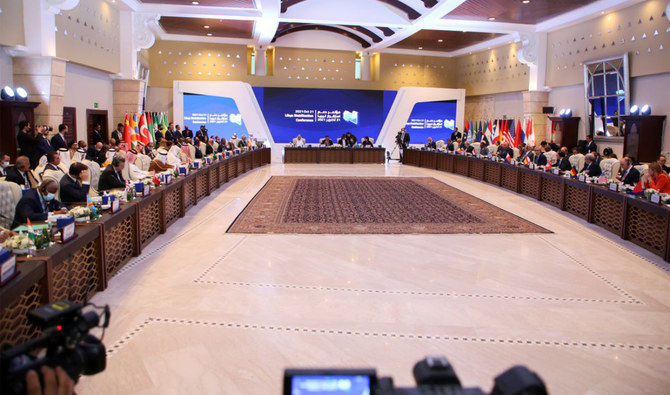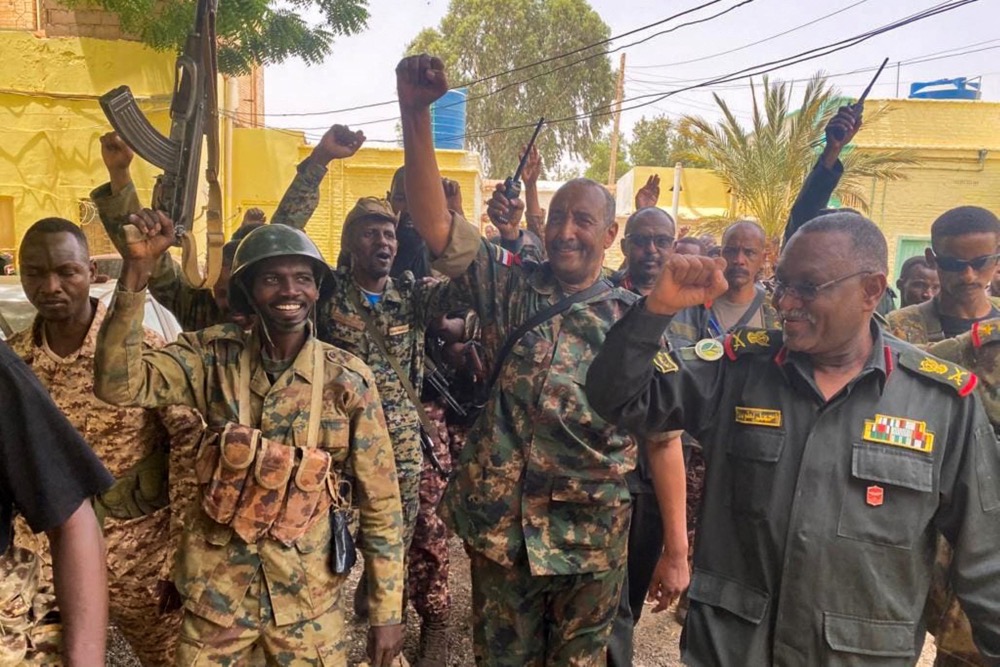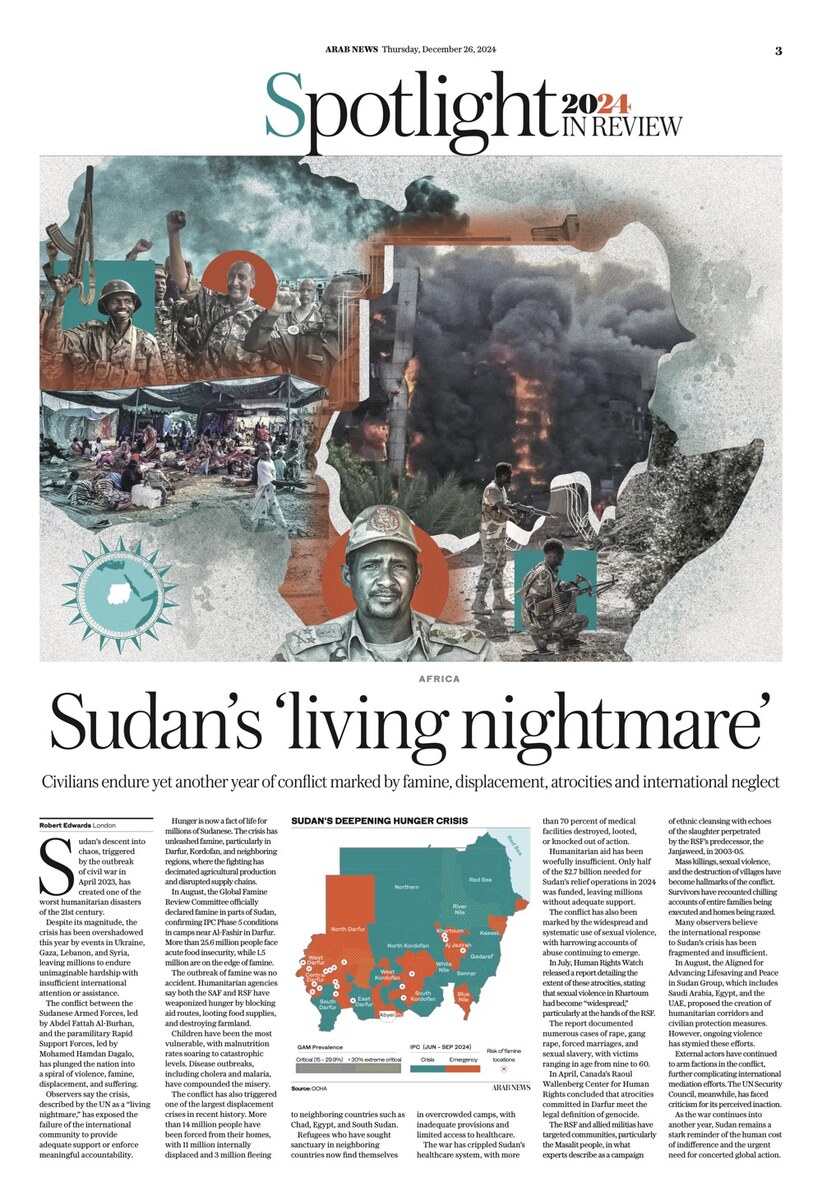LONDON: The political situation in Libya will remain unstable whether or not planned elections go ahead later this month, experts have warned, pointing to legal, political, and security failings that endanger stability in the near future.
In an event hosted Thursday by London think-tank Chatham House and attended by Arab News, a panel of speakers outlined their grim predictions for the future of Libya’s political roadmap.
Wolfram Lacher, senior associate at the German Institute for International Affairs, warned that the political situation is even worse than in the lead-up to the 2014 election, which ultimately saw the eruption of conflict between Tripoli and Benghazi-based parties.
“The current situation is immensely more problematic than it was in 2014. It’s not comparable at all,” said Lacher.
Parliamentary and presidential elections are planned for Dec. 24 for the first time since the cessation of hostilities in a civil war between the Government of National Unity’s Tripoli-based forces, the Government of National Accordand Khalifa Haftar’s Libyan National Army, based in Benghazi.
Lacher explained that the years of division that ensued during that civil war have led to a more divided country than in pre-2014.
The creation of rival administrations, Lacher said, “essentially led to the whole constitutional architecture of Libya breaking down. There is no basis anymore than anyone agrees on.”
He continued: “We’ve had two civil wars in Libya since (2014) that have inflicted deep rifts on the social fabric. The militias have grown incredibly powerful since 2014, and much more politically involved.”
But Lacher warned that the legal process convened to run this month’s elections actually threatens to enflame these divisions, not heal them — as the election was intended to do.
Libyan authorities are currently embroiled in a dispute over the legal basis upon which certain candidates, such as former Prime Minister Abdulhamid Dbeibeh, could run. Some candidates have argued that Dbeibeh should be barred from running for President because he did not comply with laws that force officials to resign a minimum of three months before an election takes place.
But these ostensibly legal technical issues — that appear administrative in nature — have an important role in deciding the outcome of the vote itself, as well as the political reality and intra-Libyan dynamics in the days following the vote.
Experts warned that militias and armed factions could refuse to accept the vote if it does not go their way, and use legal issues, such as certain candidates being allowed to run, as grounds to delegitimize the entire process. It is not clear what would happen if losing candidates choose to do this.
Zahraa Langhi, member of the Libyan Political Dialogue Forum, told participants that both the LNA and GNA are currently benefitting from a political stalemate in Libya, and so they have no true interest in seeing a free and fair election carried out.
“The current political stalemate, the political fragmentation — all these forces are benefitting from it,” Langhi said, explaining that any delay in the election could “reward” those who spoil the election’s integrity.
She also said that interim governments, convened as part of international multilateral measures, “failed miserably” to rectify Libya’s political fragmentation — despite that objective being a “major, basic milestone in the roadmap to creating national unity.”
Langhi lamented a failure by the UN to engage effectively with actors on the ground in Libya.
“The (UN) special envoy is leaving (his post) in a couple of days, leaving the whole process without oversight.”
She said that the UN has left the issue of vetting candidates — fundamentally important to a safe and secure election — to Libya’s judiciary, which she believes has “failed to address the issue.”
Now Libyans are left with a series of candidates that Langhi said do not provide any real choice for Libyans, the most prominent of which are former Prime Minister Dbeibeh, former warlord Haftar, and possibly even Saif Al-Islam Qaddafi — son of late dictator Muammar Qaddafi. “This cannot continue,” she said.
But Otman Gajiji, former chairman of the Libyan High National Election Commission, cast doubt on the possibility that Libyans will manage to vote freely and fairly at all.
Not only do Libyans not have enough time to familiarize themselves with the dozens of candidates currently in the running for election, he said, but a series of attacks on polling stations are a grim omen for voting day.
“There are new unofficial reports that four polling stations were attacked by armed groups in Aziziya, and one was in Tripoli — all voter cards, or most of the voter cards, were taken by these armed groups. For me that is a very bad sign,” Gajiji said.
He added: “We are 22 days, three weeks, ahead of the elections. Such events are not a good indicator for the near future, or for the future of the elections.”

































